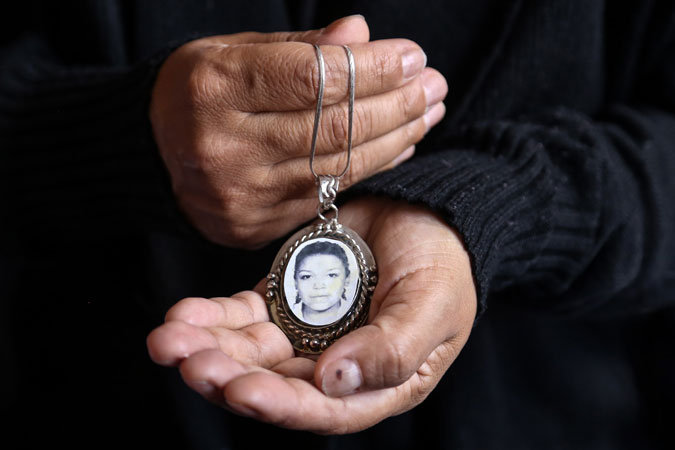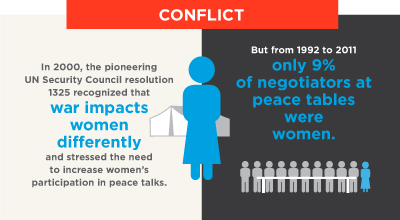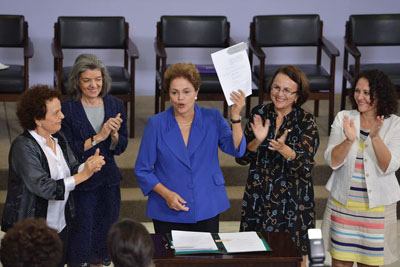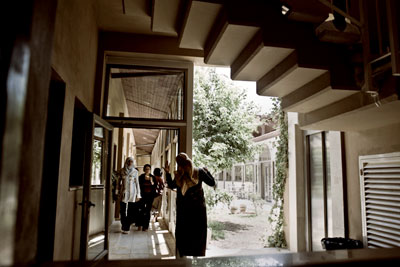SDG 16: Promote peaceful and inclusive societies for sustainable development, provide access to justice for all and build effective, accountable and inclusive institutions at all levels

Targets
- Significantly reduce all forms of violence and related death rates everywhere.
- End abuse, exploitation, trafficking and all forms of violence against and torture of children.
- Promote the rule of law at the national and international levels and ensure equal access to justice for all.
- By 2030, significantly reduce illicit financial and arms flows, strengthen the recovery and return of stolen assets and combat all forms of organized crime.
- Substantially reduce corruption and bribery in all their forms.
- Develop effective, accountable and transparent institutions at all levels.
- Ensure responsive, inclusive, participatory and representative decision-making at all levels.
- Broaden and strengthen the participation of developing countries in the institutions of global governance.
- By 2030, provide legal identity for all, including birth registration.
- Ensure public access to information and protect fundamental freedoms, in accordance with national legislation and international agreements.
- Strengthen relevant national institutions, including through international cooperation, for building capacity at all levels, in particular in developing countries, to prevent violence and combat terrorism and crime.
- Promote and enforce non-discriminatory laws and policies for sustainable development.
Peaceful and inclusive societies uphold the rule of law and ensure equal access to justice. They protect people from all forms of violence, including gender-based violence, and control corruption and organized crime. Decision-making at all levels is inclusive and responsive, and fundamental freedoms are upheld. Laws and policies apply without discrimination. During wars or conflict, women often have fewer resources to protect themselves and, with children, frequently make up the majority of displaced and refugee populations. War tactics such as sexual violence specifically target them.

Women have made strides in representation in decision-making, in some peace processes as well as governance more broadly. Still, the numbers reflect persistent inequality. From 1992 to 2011, only 9 per cent of negotiators at peace tables were women [1], despite the landmark UN Security Council resolution 1325 in 2000, which recognized that women must play central roles. Only 22 per cent of all national parliamentarians were female as of August 2015 [2].
For women in many societies, prospects for peace are undermined by gender-based violence. Women comprise 98 per cent of the estimated 4.5 million people forced into sexual exploitation, for instance [3]. Gender discrimination in legal systems includes the failure to punish perpetrators of gender-based violence.
By fully protecting all of women’s rights, without exception, in all laws and practices, peaceful and inclusive societies will be within reach.
UN Women advances peace and inclusion by backing the engagement of women in all aspects of peace negotiations, peacebuilding and reconstruction for inclusive societies. The entity trains peacekeepers to detect, address and stop conflict-related sexual violence. Other efforts support the gender-responsive reform of justice and security institutions, universal access to justice, the introduction or implementation of laws against violence against women, and provision of public services that fully meet women’s needs.
Stories
In Brazil, new law against femicide to offer greater protection
Coinciding with the new law, Brazil is the first pilot country adapting the Latin American Model Protocol for the Investigation of Gender-related Violent Deaths, promoted by UN Women and OHCHR.
In Palestine, specialized prosecutors enhance women survivors’ access to justice
UN Women is training a pool of 15 specialized public prosecutors to handle domestic and gender-based violence cases. We are also supporting the development of Standard Operating Procedures and helping improve coordination with service providers to ensure access to justice for survivors of violence in Palestine.
Notes
[1] UN Women (2012), Women’s Participation in Peace Negotiations: Connections Between Presence and Influence, p. 2-3.
[2] Inter-Parliamentary Union (2015), Women in national parliaments.
[3] International Labour Organization (2012), ILO Global Estimate of Forced Labour: Results and Methodology, p. 14.

